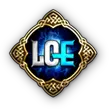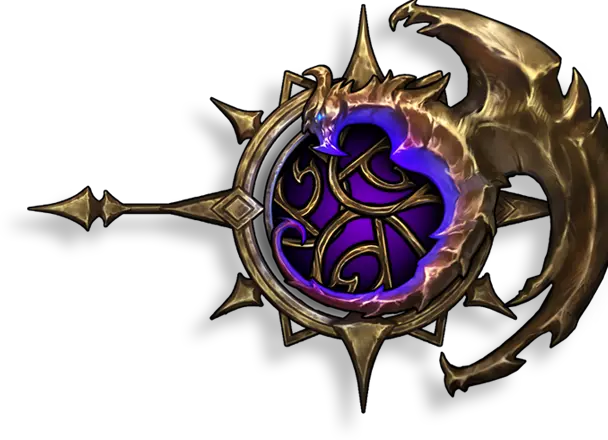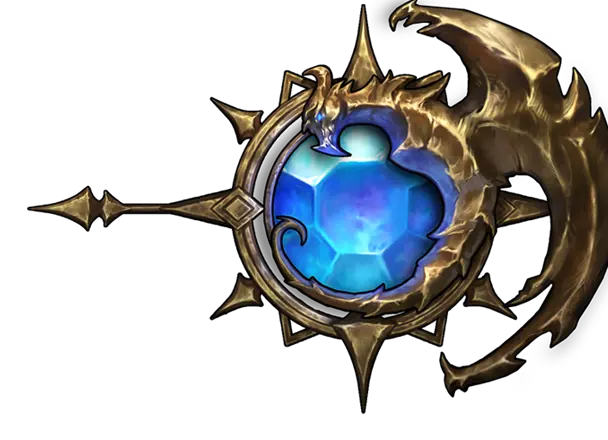Legends of Elysium vs Legends of Runeterra
Legends of Runeterra: A Comprehensive Analysis
Tactic in Legends of Runeterra
In Legends of Runeterra, tactical prowess is essential. Each decision, from deploying units to casting spells, demands careful consideration. Players must adeptly manage mana, anticipate opponent moves, and execute precise actions to gain the upper hand.
Key Tactical Features:
- Mana Management: Efficient use of mana, including the strategic banking of unspent mana as spell mana, enables flexible responses in subsequent rounds.
- Combat Timing: Deciding when to attack or defend is crucial, as the game alternates attack opportunities between players each round.
- Card Synergies: Leveraging combinations of cards, especially champion abilities, can create powerful tactical advantages.
Strategy in Legends of Runeterra
Strategic depth defines Legends of Runeterra. Players craft decks from various regions, each offering unique playstyles, to execute long-term plans that outmaneuver opponents.
Key Strategic Elements:
- Deck Building: Constructing a 40-card deck with up to two regions allows for diverse strategies and synergies.
- Champion Selection: Choosing champions with abilities that align with your overall strategy is vital for success.
- Resource Allocation: Balancing unit deployment and spell casting ensures sustained pressure and adaptability.
Collectible Aspect in Legends of Runeterra
The game offers a rich collectible experience, allowing players to acquire a vast array of cards representing champions, spells, and units from the League of Legends universe.
Key Collectible Features:
- Card Acquisition: Players earn cards through gameplay, completing challenges, and opening weekly chests, fostering a sense of progression.
- Cosmetic Customization: Various cosmetic items, such as card backs and boards, enable personalization of the gaming experience.
- Expansions and Updates: Regular content additions introduce new cards and mechanics, keeping the collection dynamic and engaging.
Trading Aspects in Legends of Runeterra
Unlike traditional trading card games, Legends of Runeterra does not feature a player-to-player trading system. Instead, it focuses on individual card collection and progression.
Key Aspects:
- Card Crafting: Players can craft specific cards using in-game resources, allowing for targeted deck customization.
- Wildcards: These special cards can be transformed into any card of the same rarity, providing flexibility in collection building.
- Economy Model: The game employs a generous free-to-play model, reducing reliance on microtransactions and emphasizing skill-based progression.
Gameplay Mechanics in Legends of Runeterra
The game combines traditional card game elements with innovative mechanics, offering a dynamic and interactive experience.
Unique Gameplay Mechanics:
- Round Structure: Players alternate roles between attacker and defender each round, promoting strategic planning.
- Spell Speeds: Spells have varying speeds—Burst, Fast, and Slow—affecting when they can be played and how opponents can respond.
- Champion Level-Up: Champions can level up during a match by fulfilling specific conditions, enhancing their abilities and impact on the game.
What Sets Legends of Runeterra Apart
- Interactive Gameplay: The alternating action system ensures both players are constantly engaged, reducing downtime and enhancing strategic depth.
- Generous Progression System: The game rewards players with ample opportunities to earn cards and resources through gameplay, minimizing the need for monetary investment.
- Connection to League of Legends Lore: Featuring characters and regions from the League of Legends universe, the game offers a rich narrative backdrop that enhances immersion.
In conclusion, Legends of Runeterra distinguishes itself through its strategic depth, innovative mechanics, and player-friendly progression system, offering a compelling experience for both newcomers and seasoned card game enthusiasts.
Legends of Elysium compared to Legends of Runeterra – Gameplay Mechanics
When it comes to gameplay mechanics, Legends of Elysium and Legends of Runeterra both stand out by intertwining traditional card game elements with innovative layers of strategy. However, their approaches diverge, creating distinct experiences for players seeking either fast-paced card combat or deeply strategic board control. Legends of Elysium introduces a unique hex-based board that transforms the battlefield into a dynamic landscape where players must terraform tiles to unlock card abilities. This spatial element adds a tactical depth absent in Runeterra, forcing players to think beyond card synergies and consider terrain influence and positioning. On the other hand, Legends of Runeterra focuses on alternating attack and defence rounds with strategic champion-level progression, offering a more reactive, fast-paced style of play. While Runeterra rewards swift decision-making and adaptability to immediate threats, Legends of Elysium demands long-term planning, territorial control, and resource management to achieve victory, appealing to those who crave a more comprehensive strategic challenge.
Legends of Elysium like Legends of Runeterra – Similarities
Both Legends of Elysium and Legends of Runeterra share the soul of what makes a great card game—strategic depth, captivating deck-building, and dynamic battles. At their core, both games embrace the essence of TCGs by allowing players to build customised decks filled with unique cards that influence every moment on the battlefield. Players must master resource management, carefully balancing their card plays with the available mana, a mechanic familiar to any seasoned card game player. Additionally, both games reward progression with new cards and offer players the thrill of assembling collections that define their playstyle. PvP combat is central to both titles, placing players in high-stakes duels where every decision counts. Quests, achievements, and ranked ladders further enrich the experience, fostering a competitive and engaging environment. Most importantly, both games immerse players in richly crafted worlds, tying gameplay to lore and narrative, making every match feel like part of a grander saga.
Legends of Elysium vs Legends of Runeterra – Key Differences
The key distinction between Legends of Elysium and Legends of Runeterra lies in their fundamental gameplay structure and progression systems. While Runeterra focuses heavily on tactical card play through alternating rounds of attack and defence, Legends of Elysium introduces a deeper layer of board control with its hex-based battlefield, where players must terraform tiles to activate abilities and gain positional advantages. Another major difference is asset ownership—Legends of Elysium integrates blockchain technology, allowing players to own, trade, and even stake their cards as NFTs, creating a real-world value system. In contrast, Runeterra takes a more traditional digital approach, where cards are earned through gameplay progression but cannot be traded between players. Additionally, LoE’s narrative-driven hero customisation offers long-term progression that directly impacts gameplay strategies, making each match a more personal journey. This customisation, combined with the board game mechanics, transforms Legends of Elysium into a hybrid experience that blends TCG and tactical strategy elements in ways Runeterra does not explore.
Tactic and Strategy in Legends of Elysium
In Legends of Elysium, success is achieved through the harmonious balance of short-term tactics and long-term strategy. Every decision players make on the hex-based board carries immediate consequences and future implications. Tactical thinking revolves around controlling key hexes, optimising mana usage, and deploying units at critical moments to seize battlefield advantages. Players must adapt to the evolving terrain and the unpredictable moves of their opponents, creating an ever-shifting landscape of opportunities and threats. On the strategic side, deck-building becomes a cerebral challenge. Players must not only consider card synergies but also factor in land requirements and hero abilities, tailoring their approach to the unique demands of each match. The heroes themselves bring a layer of strategic depth, as their passive abilities can shape long-term gameplay and influence victory conditions. By mastering both tactical manoeuvres and grand strategy, players forge their legacy in Elysium, proving that foresight and adaptability are as important as brute strength.
Legends of Elysium as Alternative to Legends of Runeterra
For seasoned strategists seeking a fresh challenge, Legends of Elysium stands as a compelling alternative to Legends of Runeterra, offering a deeper, hybrid gameplay experience that blends TCG mechanics with board game tactics. Where Runeterra thrives on swift, card-based interactions, LoE introduces a more intricate layer of decision-making through its hex-based board system, demanding players to adapt not only to their decks but also to evolving battlefield conditions. Moreover, LoE’s blockchain integration elevates the concept of card ownership, granting players true control over their digital assets, with opportunities for trading, staking, and earning tangible rewards. The narrative depth of LoE also distinguishes it, as players choose heroes whose abilities and backstories shape gameplay strategies in ways that feel more personal and immersive. For those disillusioned with the traditional grind of TCGs, LoE presents a more rewarding path where skill, long-term planning, and strategic mastery pave the way to glory. It’s a call to heroes ready to leave behind the familiar and forge a new destiny in the dynamic realm of Elysium.
Conclusion
As the sun sets on this epic comparison, one thing becomes abundantly clear: Legends of Elysium isn’t just another card game; it’s a realm where strategists rise to greatness and legends are forged through wit and perseverance. For those who seek a challenge beyond the familiar, LoE presents a battlefield that tests not only your deck-building prowess but your ability to adapt, conquer terrain, and outmanoeuvre opponents with cunning tactics. The rich lore of Elysium invites players to immerse themselves in a world filled with heroes, magic, and endless possibilities, crafting their own stories of triumph. If you’re ready to embark on a journey where every decision echoes through the annals of history, then don your armour, summon your forces, and step into the fray. The realm of Elysium awaits its next great champion—will it be you? The call to adventure is clear, hero. Now, it’s time to answer it.
| Feature | Legends of Elysium | Legends of Runeterra |
|---|---|---|
| Gameplay Mechanics | Hex-based board with terrain control and strategic positioning. Players terraform tiles to unlock abilities, adding spatial strategy to the traditional card game format. | Traditional card game mechanics with alternating attack and defence rounds. Focuses on champion levelling and fast-paced tactical decisions. |
| Tactic and Strategy | Combines short-term tactical decisions with long-term strategic planning. Players must balance card synergies, board control, and hero abilities to dominate the battlefield. | Tactical decisions revolve around managing mana, champion abilities, and card synergies. Emphasises reacting to opponents’ moves within each round. |
| Collectible and Ownership | True asset ownership through blockchain integration. Players can trade, stake, and earn rewards with NFT-based cards, creating real-world value. | Traditional digital card collection with progression through gameplay. Cards are earned via quests and chests but cannot be traded between players. |
| Immersion and Lore | Rich narrative-driven world with customisable heroes whose backstories influence gameplay. Players become part of Elysium’s evolving saga. | Set in the League of Legends universe, providing familiar characters and regions. Lore enhances immersion but doesn’t directly influence gameplay strategies. |
| Innovative Features | Fusion of TCG and board game elements. Introduces phygital items, adaptive AI, and community-driven development. Focuses on rewarding strategic depth and long-term planning. | Traditional card game innovations like champion levelling, spell speed mechanics, and interactive gameplay. Focuses on tactical card play within fixed rounds. |
| Target Audience | Designed for players seeking a challenging, strategy-driven experience with a focus on tactical depth and asset ownership. | Appeals to players looking for fast-paced card battles with a focus on tactical decision-making and progression through gameplay. |







